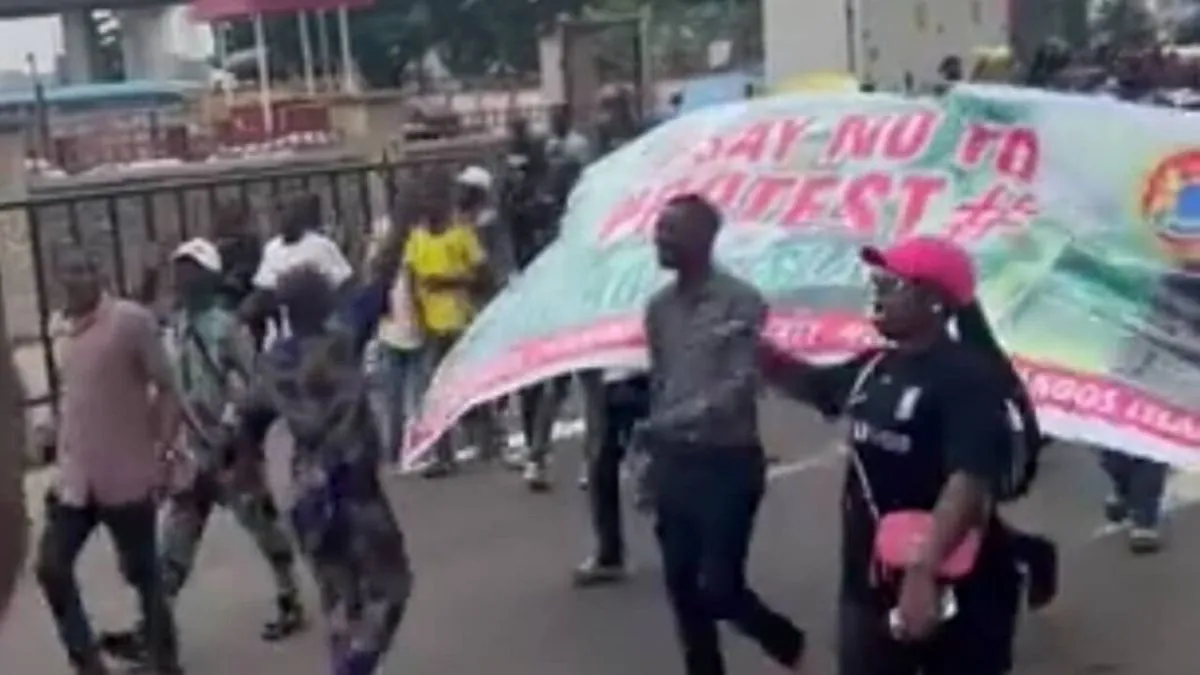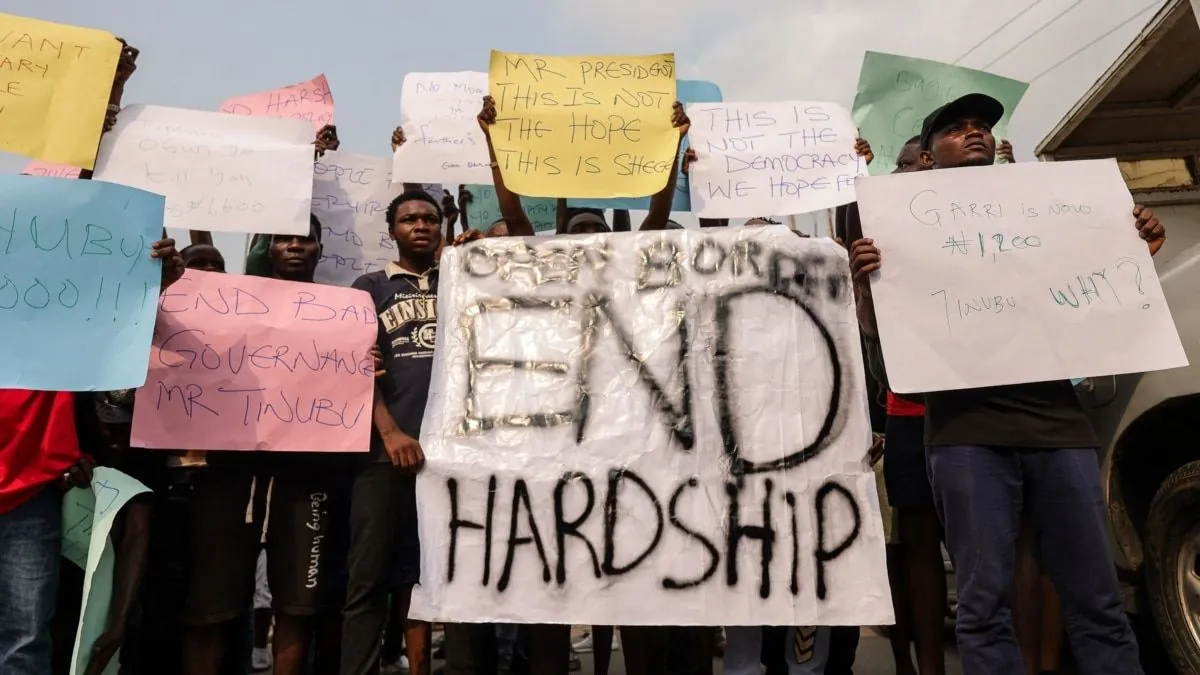Nigerian Protests Turn Deadly Amid Economic Reforms and Rising Costs
Demonstrations across Nigeria against economic hardship result in fatalities. Protesters demand subsidy reinstatement and free education, inspired by recent Kenyan protests. Government faces challenge from unemployed youth.

In a series of nationwide demonstrations on August 1, 2024, Nigerians took to the streets to voice their discontent with rising living costs and governance issues. The protests, which occurred in multiple cities across Africa's most populous nation, tragically resulted in at least three fatalities in Kaduna state.
Demonstrators in Abuja, Lagos, and other urban centers rallied against recent economic reforms implemented by President Bola Tinubu's administration. These changes, including the removal of fuel subsidies and currency devaluation, have led to a sharp increase in inflation, reaching a 28-year high of 34.19% in June 2024.

The protests, primarily led by unemployed youth, mark a shift from previous demonstrations organized by labor unions. This new dynamic presents a fresh challenge for the government as it attempts to mitigate the impact of its economic policies on the nation's 200 million inhabitants.
Inspired by recent protests in Kenya that successfully halted planned tax increases, Nigerian demonstrators are calling for the reinstatement of subsidies for petrol and electricity, as well as free primary and secondary education. They also demand measures to address the country's widespread insecurity, which has severely impacted the agricultural sector and led to frequent kidnappings in the northern regions.
"We are open to dialogue with the protesters and understand their concerns. The administration is working tirelessly to address these issues and improve the lives of all Nigerians."
Despite the government's stated willingness to engage in dialogue, citizens express frustration with what they perceive as insufficient sacrifices from political leaders. The protests have introduced a new element of social unrest, as unemployed youth take center stage in expressing their grievances.
President Tinubu, who took office in July 2023, has urged citizens to be patient with his reform agenda. However, the rapid implementation of these changes, including electricity tariff hikes, has intensified economic hardships for many Nigerians.
The demonstrations have been met with a strong security presence, with armed personnel deployed to maintain order. In Lagos, police monitored protesters as they marched toward government buildings, while some shopping malls closed their doors as a precautionary measure.
As Nigeria grapples with these economic and social challenges, it's worth noting that the country remains Africa's largest oil producer and boasts the continent's largest economy by nominal GDP. However, high youth unemployment rates and widespread poverty continue to fuel discontent among the population.
The ongoing protests highlight the delicate balance between implementing necessary economic reforms and addressing the immediate needs of a diverse and youthful population. As the situation unfolds, the government faces the challenge of finding solutions that can alleviate economic pressures while maintaining stability in a nation with a complex history of political and social dynamics.


































